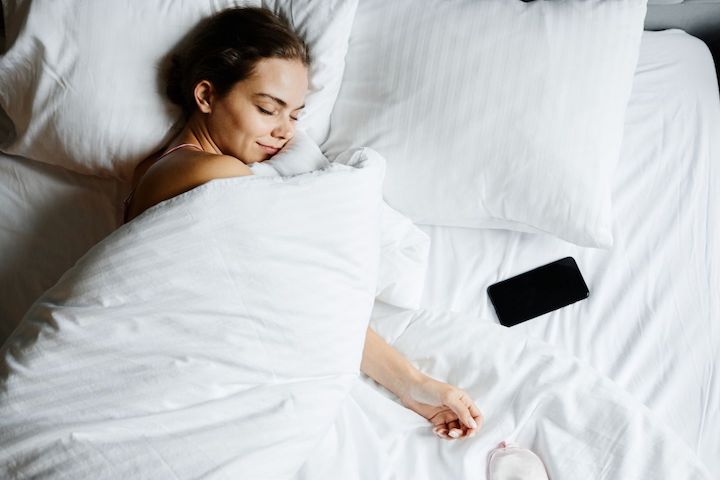

Are you involved in physical therapy and struggling to get a good night’s sleep? If so, you’re not alone! Physical therapists understand the importance of proper rest for both mind and body. That’s why it’s essential to understand the role that sleep benefits apply in your physical therapy plan.
In this article, we’ll explore some of the benefits of quality sleep and provide practical tips for improving your sleep quality. We’ll also discuss how much sleep is enough and the impact of various sleep disorders on your physical therapy journey.
Check out our complete guide to Physiotherapy, if you’re interested in the areas it covers.
You’ll learn about sleep aids and how exercise can help or hinder your ability to get the restful slumber you need. So read on to find out more about the important role that adequate rest plays in helping you reach your physical therapy goals!
As a physical therapist, you play an important role in helping your patients achieve their goal of optimal health. You provide them with the skills and knowledge they need to reduce pain, improve mobility, and restore function.
Through your expertise in physiotherapy techniques and treatment interventions, you help your patients regain independence as well as improve their overall quality of life. Physical therapy can also offer mental health benefits for those who struggle with depression or anxiety.
By providing a supportive environment and giving individuals the tools to manage their condition, physical therapists can assist in improving both physical and mental well-being.
You know what’s great? Sleep! It’s the time when your body can relax and recuperate, so you better get those Zzzz’s if you want to stay healthy.
 Photo Credit: Andrea Piacquadio, Pexels
Photo Credit: Andrea Piacquadio, Pexels
Sleep helps maintain physical health and mental well-being while restoring energy levels. Our bodies have a natural circadian rhythm that regulates our sleep-wake cycle, so it’s important to stick to a regular bedtime and wake-up time.
Getting too little or too much sleep can lead to sleep deprivation which can have serious effects on physical and mental health, including increased risk of injury or illness. Therefore, keeping an adequate amount of quality sleep is essential for maintaining a healthy lifestyle and reaping all the sleep benefits.
Would you like to discuss how sleep benefits are crucial to physical therapy?
Healing and regeneration are improved by consistent, quality sleep. Stress reduction is also a benefit of getting enough restful sleep as it helps the body to restore itself.
Finally, restorative benefits can be seen when we get sufficient amounts of restful sleep; this allows the body and mind to recharge and rejuvenate.
Promoting healing and regeneration is paramount to successful physical treatment. As a physical therapist, it’s important to understand how sleep plays an integral role in the body’s ability to heal and regenerate, both mentally and physically.
Sleep benefits include helping reduce stress hormones, which can help with muscle recovery, while also allowing for greater mental clarity. To assist in the healing process of your patients, here are three tips:
The ability to effectively manage stress is essential for successful physical treatment, as it can lead to improved mental and emotional well-being. And it is exactly one of the sleep benefits that physical therapy can reap rewards from.
Mindful breathing and relaxation techniques are two great ways to reduce stress during physical therapy sessions. By taking a few moments to practice simple breathing exercises, you can bring your body into a more relaxed state and gain clarity of mind. This, in turn, helps the patient focus their energy on the task at hand and improves their performance in the session.
Additionally, incorporating relaxation techniques such as guided imagery or progressive muscle relaxation can help the patient further reduce anxiety while they practice physical therapy activities. Relaxation techniques not only help improve performance but also have lasting effects that can help patients become more resilient in the face of stressful situations.
With regular practice, these mindfulness tools can be used both during physical therapy sessions and between them as a way to reduce stress levels even when away from the clinic.
Taking time to rest and recover is key for successful physical treatment, so you can reap the restorative benefits of your therapy sessions.
Recent research has shown that prioritizing sleep is one of the best ways to optimize physical therapy outcomes. Cultivating mindful breathing techniques and tracking sleep patterns are two methods that have been linked to improved recovery times as well as better overall results from physical therapy sessions.
 Photo Credit: Darina Belonogova, Pexels
Photo Credit: Darina Belonogova, Pexels
When it comes to maximizing the restorative effects of physical therapy, grasping the sleep benefits by taking the time to implement healthy sleep habits is a must. Incorporating mindful breathing exercises into your evening routine can help relax your body in preparation for a good night’s rest.
Additionally, tracking sleep patterns can provide insight into how certain activities or lifestyle choices might be impacting your quality of sleep and allow you to make necessary adjustments accordingly.
Making sure you get adequate restful sleep each night allows your body more time for healing itself which can ultimately lead to better results from your physical treatments.
You know you’re feeling better when you get a good night’s rest – so make sure to prioritize quality sleep for optimal health. Quality sleep is essential for physical therapy, as it helps improve mental and physical well-being. It is important that during physical therapy, individuals are getting the right amount of quality sleep in order to maximize the sleep benefits.
Quality sleep has many benefits, including:
Quality sleep should be prioritized during physical therapy in order to maximize results and ensure optimal progress towards healing goals. Incorporating strategies such as meditation, yoga, or deep breathing exercises before bedtime can help create a more restful sleeping environment for enhanced recovery from physical therapy treatments.
Gaining an understanding of how much sleep is right for you can be like unlocking the key to a more relaxed, productive life – so don’t underestimate its worth!
Sleep duration and daytime fatigue are two important indicators when it comes to determining the amount of sleep that’s right for you.
The American Academy of Sleep Medicine (AASM) recommends adults aged 18-60 get 7 or more hours of quality sleep per night, with those aged 61+ aiming for 7-8 hours.
For physical therapists, getting enough sleep is especially important as it helps maintain energy levels throughout the workday, reduce stress, and improve concentration.
Research has also found that inadequate sleep can lead to a greater risk of injury due to decreased coordination and slower reaction times. It’s essential then that physical therapists prioritize getting adequate rest in order to perform at their best.
Creating healthy habits around bedtime can help ensure you’re getting enough quality shut-eye each night – setting aside a specific time for sleeping each day and avoiding screens before bed are just two examples of obtaining the better part of sleep benefits.
Getting the right amount of sleep is essential to living a healthier, happier life – and it all starts with having good sleep hygiene! Sleep deprivation can have a major impact on your physical therapy treatment plan, so it’s important to make sure you’re getting enough restful sleep.
 Photo Credit: Andrea Piacquadio, Pexels
Photo Credit: Andrea Piacquadio, Pexels
Implementing lifestyle changes that promote better sleep habits can be incredibly beneficial for those in physical therapy. Here are some tips for improving your sleep hygiene:
With proper effort and dedication, you’ll soon find yourself able to enjoy restful nights of quality sleep!
Sleep disorders can have a major impact on your overall well-being, so it’s important to make sure you’re getting quality sleep. From sleep deprivation to disrupted sleep cycles, there are many potential issues that may arise from not taking care of your body’s need for rest.
In physical therapy, being aware of the impacts of these various sleep disorders is essential in order to properly treat patients and help them obtain their sleep benefits. Here are a few ways that untreated sleep disorders can affect physical therapy:
It’s important that physical therapists recognize the signs and symptoms of underlying sleep problems and be proactive about helping their clients address them as part of their treatment plan for optimal results.
You may already be familiar with the impact of sleep disorders, but have you considered the potential benefits of sleep aids?
Whether they come in the form of natural remedies or prescription medications, there are a variety of options that can help improve your ability to get restful sleep.
In this section, we’ll explore some of the most widely-used and effective methods for improving your sleep environment and using meditation techniques to achieve a better night’s rest.
Sleep aids can range from simple lifestyle adjustments to more rigorous treatments, such as melatonin supplements or pharmaceuticals prescribed by a doctor.
If you’re looking for something natural and easy to use, consider incorporating meditation into your routine. This technique has been proven to reduce stress levels and induce relaxation before bedtime helping you maximize the sleep benefits.
Additionally, creating an optimal sleeping environment – free from noise pollution and distractions like TV – can also make it easier for you to drift off into dreamland at night.
With these tools in place, physical therapists can help their patients establish healthy habits for getting restful sleep on a regular basis.
Exercising regularly can help ensure you get the restful sleep you need. Research has shown that physical activity can help regulate your body’s sleep-wake cycle and improve your overall quality of sleep.
When it comes to exercise intensity, moderate-intensity exercises are best for improving sleep since they do not cause fatigue or stress. Incorporating aerobic exercises and strength training into your routine can improve the duration and quality of your sleep.
Additionally, engaging in yoga or stretching before bedtime may be beneficial for relaxation and winding down after a long day. For those with physical therapy-related injuries or conditions, regular exercise is key to helping promote better overall health and well-being.
However, it is important to take into consideration how much rest you require in between workouts so as not to disrupt your body’s natural sleep cycles. Talking with a physician or physical therapist about the right amount of rest for you can help keep you on track with getting the necessary amount of restful sleep needed to support healing and recovery from any injury or condition related to physical therapy treatments.
Getting a good night’s sleep can make all the difference in how you feel during the day, so it’s worth taking steps to improve your sleep quality. When it comes to physical therapy, obtaining the sleep benefits with proper rest is essential for recovery and maintaining good health.
Fortunately, there are many practical tips that can help you get a better night’s sleep. One of the most effective tips is to set up a routine for going to bed and waking up at consistent times each day. This will condition your body to become accustomed to sleeping and waking at certain hours, making it easier for you to fall asleep when it’s time.
 Photo Credit: Marcus Aurelius, Pexels
Photo Credit: Marcus Aurelius, Pexels
Additionally, limiting exposure to electronics before bedtime will also help improve your quality of sleep as they may stimulate the mind and keep you awake longer than necessary. Another way of improving your sleep quality is by addressing any potential underlying issues that might be disrupting your nights such as night terrors or insomnia.
Light therapy has been proven to reduce symptoms associated with these conditions significantly so it might be worth looking into if you’re experiencing either one of them.
Finally, try not to neglect exercise as this can have a positive impact on both physical and mental well-being which in turn can lead to better night sleeps overall!
Sleep is crucial for the body’s recovery and healing processes. During sleep, the body repairs damaged tissues, consolidates memories, and regulates hormones. Adequate sleep is essential for maximizing the benefits of rehab by allowing the body to restore and rejuvenate.
Yes, physical therapy can help improve sleep quality. Physical therapists can use various techniques, including exercise programs, relaxation techniques, and pain management strategies, to address underlying issues that may be impacting sleep. By improving overall physical health and reducing pain, physical therapy can contribute to better sleep.
Sleep plays a vital role in maintaining both mental and physical health. It supports cognitive functions such as memory, attention, and problem-solving. Sufficient sleep promotes emotional well-being, reduces stress, and enhances mood. It also aids in muscle repair, immune function, and hormone regulation, contributing to better physical health.
Lack of sleep can have significant negative effects on physical health. It impairs immune function, making individuals more susceptible to infections and illnesses. Chronic sleep deprivation increases the risk of cardiovascular diseases, obesity, diabetes, and high blood pressure. It also affects coordination, balance, and reaction times, increasing the risk of accidents and injuries.
Yes, physical therapy can help improve sleep disorders by using exercise variability and relaxation techniques.
Yes, sleep aids can have side effects such as drowsiness, dizziness, and confusion, so it’s important to talk to your doctor before taking them. Relying too much on sleep aids can also lead to dependency and tolerance, reducing the effectiveness of alternative remedies like sleep hygiene.
To ensure sufficient rest while progressing with physical therapy, develop a sleep hygiene routine that supports your circadian rhythms. This includes relaxation before bed, avoiding screens or bright lights in the evening, and maintaining a consistent bedtime.
While adequate sleep is important for health, oversleeping can be detrimental. Shift work and melatonin supplements may lead to excessive sleep, resulting in fatigue, irritability, and an increased risk of diabetes. Finding the right amount of sleep for your lifestyle and body type is crucial.
Certain foods like almonds, bananas, fatty fish, and kiwi have been shown to promote restful sleep. These foods are rich in antioxidants and can support the overall healthy functioning of the body. Consider incorporating them into your diet to improve sleep quality.
There are no results matching your search.
Reset